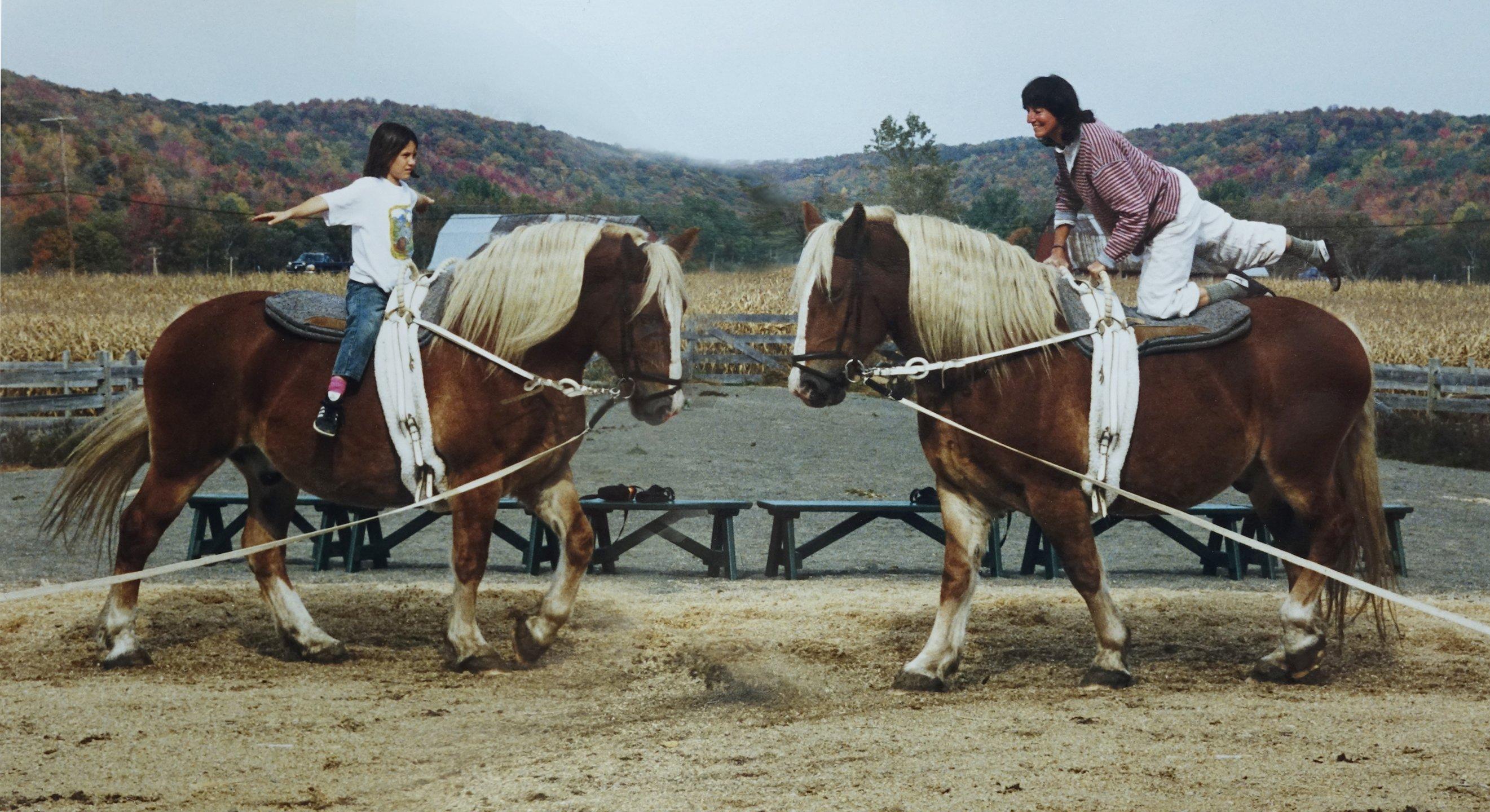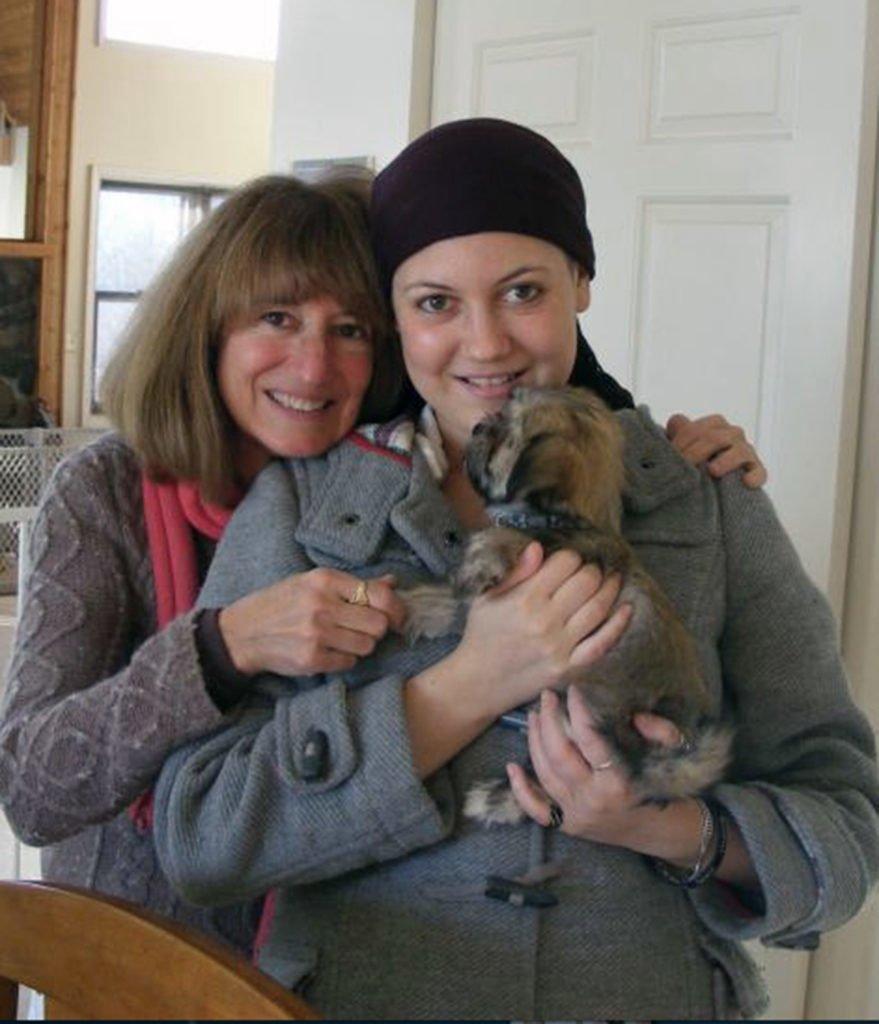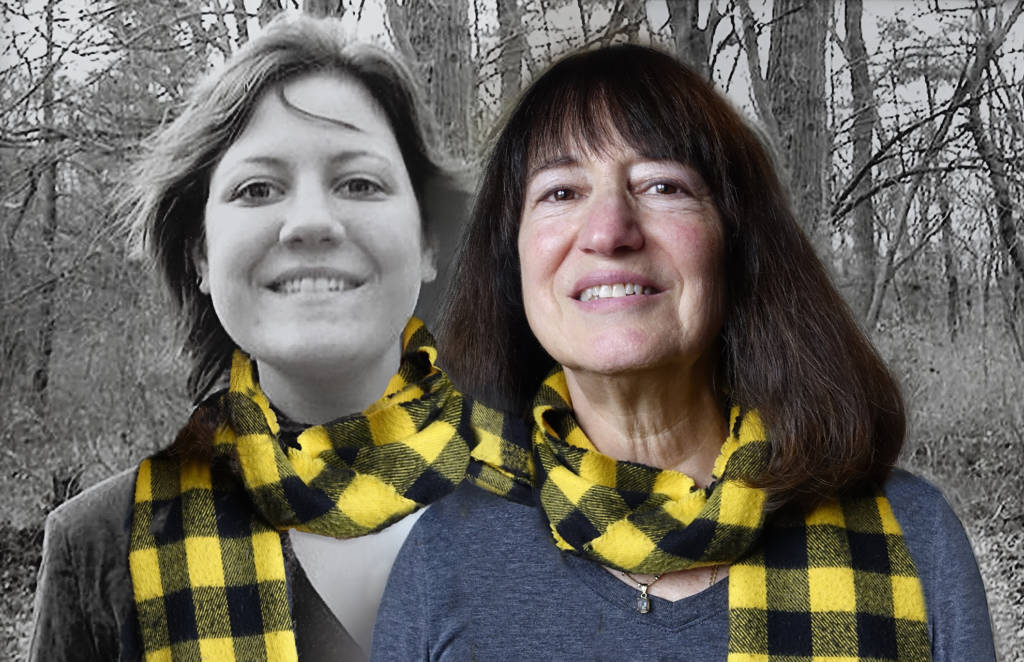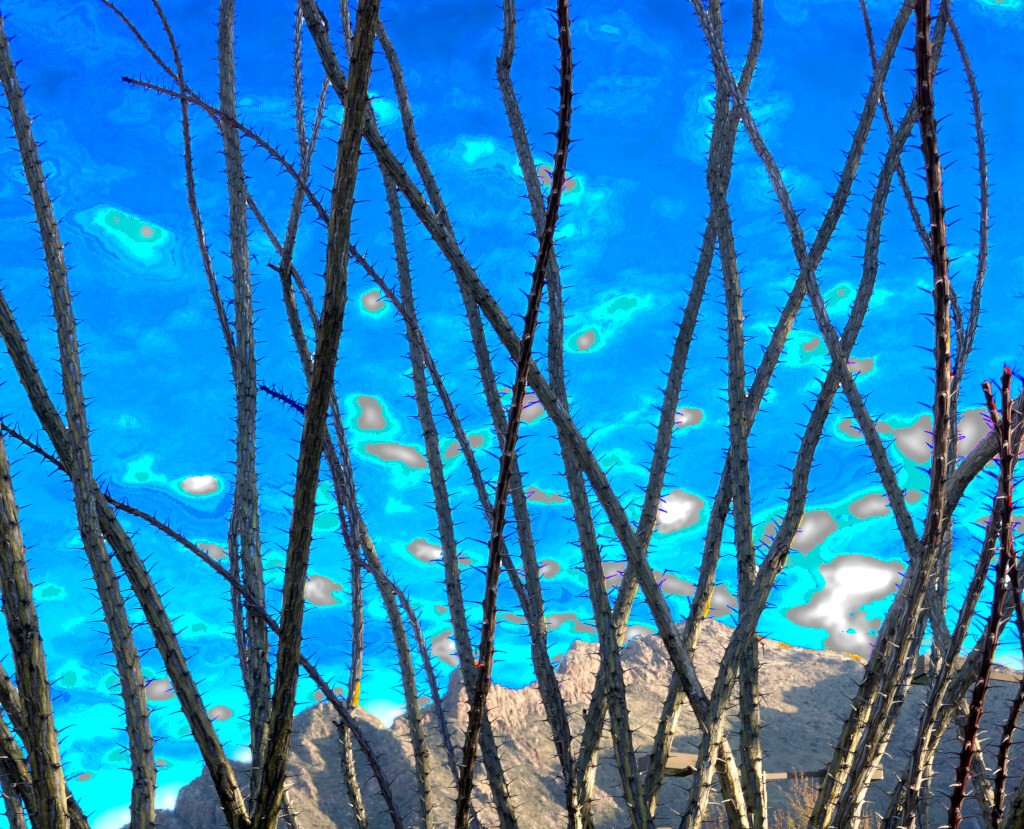 If you consider the many ridiculous things I did to keep my daughter loving me when she was alive, all my crazy carrying-on since she died should come as no surprise. What wild and crazy things did you do in the name of love?
If you consider the many ridiculous things I did to keep my daughter loving me when she was alive, all my crazy carrying-on since she died should come as no surprise. What wild and crazy things did you do in the name of love?
 If you consider the many ridiculous things I did to keep my daughter loving me when she was alive, all my crazy carrying-on since she died should come as no surprise. What wild and crazy things did you do in the name of love?
If you consider the many ridiculous things I did to keep my daughter loving me when she was alive, all my crazy carrying-on since she died should come as no surprise. What wild and crazy things did you do in the name of love?
 “How’s your girl doing?” asked an old friend at a public event last week. Dumbfounded, I stopped breathing and stared at him. He couldn’t mean My Girl, as in my daughter who died. Was he maybe inquiring about my BFF inherited dog? Or the young woman who helps me in the garden? No—he really was asking about my daughter—whose funeral and memorial he had, himself, attended eight years ago.
“How’s your girl doing?” asked an old friend at a public event last week. Dumbfounded, I stopped breathing and stared at him. He couldn’t mean My Girl, as in my daughter who died. Was he maybe inquiring about my BFF inherited dog? Or the young woman who helps me in the garden? No—he really was asking about my daughter—whose funeral and memorial he had, himself, attended eight years ago.
“Uh, well, you know she d—,” I stopped myself.
It had been years since I’d run into someone who didn’t know of Marika’s death, where I’d have to awkwardly inform them of her demise. I hate having to spill this to clueless folks who, as a result, will feel queasy around me forever after. Sometimes people who know my story avoid me, like maybe they’re scared I’ll fall apart howling. Spotting old friends at weddings and funerals, I’ve learned to wait and let them approach me rather than descend upon them. And I never mention my daughter unless they do, even though I’m itching to talk about her. Such is life with a dead daughter. I feel I have to protect people. I leave them plenty of time and space to make the first move. If they’re brave enough.
But this guy had known my daughter died.
“How’s your girl?” He asked again, with warm smiling eyes.
“Well, um—I’m keeping her close in my heart,” I tell the poor fellow, trying to simultaneously show him I’m okay, and he’s okay for not remembering, and remind him that Marika is dead. It was the best response I could come up with in my shock.
He cocked his head, and I repeated in a steady calm voice, “I keep her very close in my heart,” emphasizing ‘heart.’ He winced, and smacked his face. And I thought he would shrivel up and sink through the floor in mortification of forgetting. I told him it was all cool, and thanked him for thinking of Marika. He broke free of me shortly after.
“What is Marika like?” one of my hiker friends asked, the very next day, upon seeing the tattoo of Marika’s name on my bare arm.
“Thank you for using the present tense, since I think of my daughter as still being here in many ways,” I said, not entirely sure she understood that Marika is dead. Then I merrily answered her, rambling on and on about my favorite subject to talk about.
When’s the last time you invited a bereaved parent to talk about her beloved child?
 I was ashamed to admit I still talk to my daughter who died. And I was afraid that if I let go of her, or allowed my grief to dissipate even an ounce, we would both be lost. Other than that, seven years out from Marika’s death, I thought I’d figured out this thing called grieving, and was finally, kinda pretty-much (most days) at peace with the way things had turned out. I was okay, except for hanging onto her and feeling like maybe I was defective because I wouldn’t let myself detach.
I was ashamed to admit I still talk to my daughter who died. And I was afraid that if I let go of her, or allowed my grief to dissipate even an ounce, we would both be lost. Other than that, seven years out from Marika’s death, I thought I’d figured out this thing called grieving, and was finally, kinda pretty-much (most days) at peace with the way things had turned out. I was okay, except for hanging onto her and feeling like maybe I was defective because I wouldn’t let myself detach.
Then, last week, I learned about continuing bonds, a modern view of grief where therapists encourage preserving but redefining the relationship one has with a loved one who died. Even altered by the absence of the physical presence, connections with the deceased can still grow and continue for the lifetime of the one left behind. The continuing bonds theory contends that staying connected, rather than ending the relationship, helps the bereaved cope with loss and the ensuing changes in one’s life.
For years, to feel closer to Marika, I’ve been talking to her, letting her inspire and guide me, taking up some of the things she did, learning to love what she loved, wearing her scarves and tight jeans, and eating sushi every chance I get. She was a writer and blogger so I became a writer and blogger. She loved Facebook and photography. So…. This was the only way I could survive.
This week’s assignment in photography class was to turn the camera on our-selves to make conceptual self-portraits, ones that express some facet of personal identity. I answered the same questions I pose to my other subjects: What is it like to do what you do? What did you lose? What did you find?
What it’s like to keep on loving Marika’s ghost – It’s comforting. It’s like I’m carrying her, like I did before she was born. Like I always have her close by my side. It makes me stronger. Braver.
I lost the feeling that I had to hide my ongoing attachment to my daughter. I found that our once rocky relationship has matured and mellowed over the past seven years. Marika used to say, “Mom, you’re a wimp.” And now I hear, “Mom, you can do this.”
How do you cope with loss and the accompanying changes in your life? In what other ways can one stay connected to a loved one who died?
 “Do you ever go out dancing?” someone asked an old woman. The old woman looked away, smiling, not sure how to answer. Because she’d been out just the night before, listening to the music of frogs, the joyful trilling of tree frogs and low gunk-gunks of the bulls. And she’d danced in the driveway with her dog.
“Do you ever go out dancing?” someone asked an old woman. The old woman looked away, smiling, not sure how to answer. Because she’d been out just the night before, listening to the music of frogs, the joyful trilling of tree frogs and low gunk-gunks of the bulls. And she’d danced in the driveway with her dog.
Quiet and subdued when people were around, most days the woman kept herself in check. But sometimes she just had to run. Or dance. Or roughhouse with the dog. Often, from someplace deep within and unreachable, there was a stirring, a wildness that couldn’t be tamed and wouldn’t let her sleep. Her heart howled with the coyotes, and restless leg syndrome beat through her whole being. Ghosts danced in her head. “It’s the- Marika-in-me,” she told herself, attributing the hungry black hole in her heart to the daughter who died. In the middle of many nights she’d find peace outside singing Sweet Baby James to the moon.
Wild woman. Maybe. But you haven’t seen anything yet. In May she grows more and more alive. As daylight sticks around until almost bedtime, as hostas uncurl in the garden, as the flooded pond goes down and the hills green up, and the forest floor fills with trillium and then trout lilies, the woman yips, “Yee-hah!” into the wind. In a flurry of spring-cleaning, she prunes and rakes and weeds, all the time mimicking the songs of birds. She calls to the frogs and floats candles on the pond. Lights up the deck with battery-powered lanterns. Throws crackers to the ducks. Barks, with the dog, dodging the geese. Crazy lady. Good thing she lives in the countryside, out in the hills where no one is bothered by her rantings.
An invitation arrives in the mail. The RSVP card begs, “Please list a song that will get you dancing.” For days the woman considers this. Finally she responds, yes. But cannot say what might drive her to dance.
It’s mostly on clear nights after many days of rain, when the wind sleeps and stars wink, and the frog-song is at its most frenzied, that the crazy lady does her little dance with the dog. They jump. Twirl. They run and chase each other in the dark. And when she and the dog are both panting for breath, they sit together on a rock at the edge of the pond, and the woman whispers a promise into the dog’s soft fur, “We’re gonna make this summer our best yet.”
What does your wild side look like? What song will get you dancing?
 “What magnificent thing will we do today?” I ask my daughter. She’s been dead for six years now, but this is how I begin my days. Walking the dog in the driveway, looking through trees to see what color the sky is wearing, I say, “What magnificent thing, Marika?”
“What magnificent thing will we do today?” I ask my daughter. She’s been dead for six years now, but this is how I begin my days. Walking the dog in the driveway, looking through trees to see what color the sky is wearing, I say, “What magnificent thing, Marika?”
Almost anything I do after dragging myself out of bed qualifies as magnificent. Other than burrowing back under the covers. The ‘magnificent thing’ is something that has the potential to propel me forward. For a while. Something to look forward to, that might even make me feel good. Because, if I don’t plan or push myself, I could easily spend my time immobilized by grief, moping and miserable. The work of facing the world and putting a life back together is exhausting. Grief invades your sleep, your physical and mental wellbeing, your creativity, all parts of your life. Counselors and support sites agree that taking time off from grieving helps us heal. Not that we can simply switch it on or off, but we can nudge it over from center stage to the background, or take baby-steps back from it to focus on something else for a while. To recharge. Regain strength, courage and hope.
Last weekend a friend asked me to go with her on a winery tour. It would be a whole day away from home, away from the computer, online support groups, and my quiet space to nurse my emptiness. All I had to do was sit in the car as she drove from one winery to another and we’d be served wines paired with beautiful foods. It was something Marika would have loved, and it would be magnificent, so I went. And I pretty much forgot about my grief. (I think maybe I even had fun).
I only “cheated” once. Looking over Cayuga Lake, holding a glass of Thirsty Owl dry Riesling, I was missing my daughter, so I made a silent toast to her. And blew a kiss to the clouds.
After the tour I was cranky. Taking a daylong break from grief turned out to be more exhausting than staying home grieving. Could barely eat dinner. Too tired to talk. Drove home, desperate to get to bed. Walked the dog without even reflecting on the day’s magnificent things.
And I felt guilty for spending so much time not thinking about Marika. But I know that she knows, and you know, it doesn’t mean I love her any less.
What can you do to take a break from your troubles?
 The best relief from my own grief comes when I reach out to help someone else in their troubles. But one thing I still find impossibly hard is to reach out for help when I’m the one suffering.
The best relief from my own grief comes when I reach out to help someone else in their troubles. But one thing I still find impossibly hard is to reach out for help when I’m the one suffering.
Last week, driving back from the airport after saying goodbye to the one I love most in this world, I had to pull off the road and stop the car several times, unable to see through my tears. Finally arriving home, I howled in the driveway, begging, pleading, praying, …sobbing into my dog’s fur. I tried to summon my courage, strength, the spirits of my dead father and daughter. I even called on god. But the aching grew worse.
“Love the grief. Learn to live with the pain,” and “You are not alone, you can do this,” I went through all my mantras aloud. I desperately wanted to go back in time, to the night before, when we’d clinked our glasses of whiskey. “To you and your adventure,” I’d said cheerfully, looking more at the ice swimming in the whiskey than at the eyes of the one I love. Now there would be no eyes to watch, no celebrating, no more late nights toasting to the future.
Empty-nest-syndrome. A hole in my heart almost as big as when my daughter died. No need to bother anyone else about this, I told myself. Don’t be a burden, don’t be a wimp. It was late enough I could simply take a pill and go to sleep. And I thought how sad it was, having no one to announce to, “I’m going to bed.” And that started the tears and howling all over again until I thought of someone who might understand. Gasping for breath, I phoned her.
After sputtering out my story I said, “I’m okay, I just needed someone to say goodnight to.” That was pretty much true. So every day since, I’ve been phoning family and friends. Good morning. Goodnight. And sometimes I don’t know anymore if I’m reaching out to help or be helped. But maybe it’s all the same in the end.
What does reaching out mean to you?